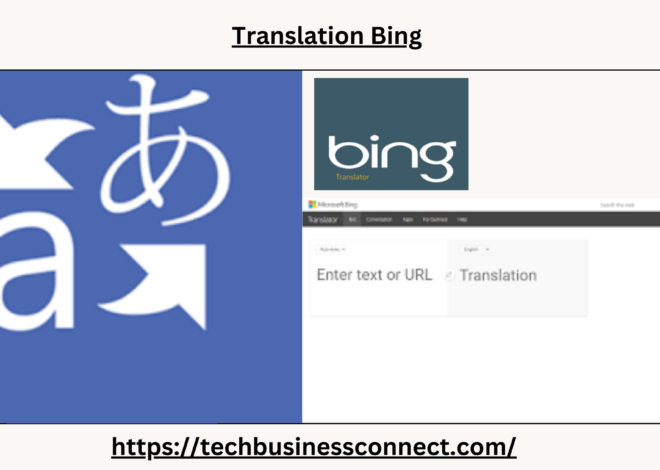
Google Dreidel: A best Virtual Spin on a Traditional Game in 2024
Introduction
The dreidel is a well-known symbol associated with the Jewish holiday of Hanukkah, representing the festival’s spirit and historical significance. Traditionally a four-sided spinning top, each side of the dreidel bears a Hebrew letter, standing for the phrase “Nes Gadol Haya Sham” (A great miracle happened there). While this ancient game has been a cherished part of Jewish culture for generations, its relevance has found a new dimension in the digital age through Google’s virtual dreidel game.
Google Dreidel is a fun, interactive feature that brings this time-honored tradition into the modern era, allowing people from all walks of life to engage with and enjoy this cultural symbol. Whether for educational purposes, entertainment, or simply to celebrate the holiday, Google Dreidel has become a delightful addition to Hanukkah festivities. In this article, we will explore the origins of the dreidel, how Google has transformed it into a digital experience, and the broader implications of bringing cultural traditions into the online world.
The Origins of the Dreidel
To understand the significance of Google Dreidel, it is essential to first delve into the history and symbolism of the dreidel itself. The dreidel game has roots that stretch back over 2,000 years, originating in the time of the Syrian-Greek persecution of the Jews. According to tradition, Jewish people were forbidden to study the Torah, their holy text. To continue their religious studies in secret, they would gather in groups and keep dreidels on hand. If soldiers appeared, they would hide their scrolls and pretend to be playing with the dreidels, thus avoiding suspicion.
The dreidel is more than just a game; it is a reminder of Jewish resilience and the importance of faith, education, and cultural identity. Each of the dreidel’s four sides features a Hebrew letter: Nun (נ), Gimel (ג), Hei (ה), and Shin (ש). These letters not only form the aforementioned phrase about the miracle of Hanukkah but also have specific roles in the game. Players take turns spinning the dreidel and follow actions based on which letter lands face-up. This simple yet engaging game has been a favorite among Jewish families during Hanukkah, fostering joy, community, and a connection to their heritage.
Google Dreidel: A Modern Twist
In 2018, Google introduced a new way to engage with this cherished Hanukkah tradition through its virtual dreidel game. This interactive feature, accessible via the Google search engine, offers users the chance to play the dreidel game online. By simply typing “dreidel” or “spin the dreidel” into the Google search bar, users are presented with a digital dreidel that they can spin with a click of the mouse or a tap of the screen.
Google Dreidel maintains the traditional rules of the game, with the four Hebrew letters represented and the corresponding actions. The virtual version is straightforward: after spinning the dreidel, it will land on one of the letters, and a pop-up message explains what that means for the player (e.g., taking all the coins in the pot or adding one). This online adaptation makes it easy for anyone, regardless of their familiarity with the game, to participate and learn about this Jewish custom.
Features and User Experience
Google Dreidel is designed to be user-friendly and accessible, capturing the essence of the traditional game while providing a digital experience. Here are some of the key features and aspects of user experience that make the virtual dreidel engaging:
- Interactive Gameplay: The virtual dreidel spins realistically with a click or tap, and the animation is smooth and visually appealing. The user interface is simple, with clear instructions that make it easy for anyone to understand the game.
- Educational Component: Each time the dreidel lands on a letter, a brief description explains its meaning and the associated action. This educational element allows users unfamiliar with the game or Jewish traditions to learn and appreciate the cultural significance of the dreidel.
- Multiplayer Option: The virtual dreidel game includes an option to play with multiple players, replicating the communal aspect of the traditional game. Players can take turns spinning the dreidel, making it a fun activity for family and friends, especially during Hanukkah gatherings.
- Visual and Audio Effects: The game features vibrant colors and a festive design, enhancing the holiday spirit. The sound effects, such as the dreidel spinning and the celebratory music, further immerse players in the experience, making it more engaging and enjoyable.
Cultural Significance and Global Reach
One of the most significant aspects of Google Dreidel is its ability to introduce and spread cultural traditions beyond their usual boundaries. The virtual dreidel game allows people from all over the world, regardless of their religious or cultural background, to learn about and participate in a Jewish tradition. This accessibility helps foster understanding and appreciation for cultural diversity.
For the Jewish community, especially those living in regions with smaller Jewish populations, Google’s Dreidel offers a sense of connection to their heritage. It allows individuals who might not have access to a physical dreidel or a Jewish community to still engage with and celebrate Hanukkah. In this way, technology becomes a bridge that connects people to their cultural roots and helps maintain traditions in the digital age.
Moreover, Google Dreidel is an example of how technology can be used to preserve and adapt cultural practices. As societies evolve and digital platforms become increasingly integrated into daily life, traditional customs can find new expressions and ways to thrive. The virtual dreidel game is a testament to how ancient traditions can be honored and revitalized through innovation.
Broader Implications: Digital Traditions and Cultural Preservation
The success of Google Dreidel is indicative of a broader trend where cultural traditions are finding a place in the digital world. This trend raises interesting questions about the role of technology in cultural preservation and the ways in which digital platforms can be used to celebrate and educate about different cultural practices.
By bringing the dreidel game online, Google has shown that digital adaptations of cultural traditions can be effective in engaging modern audiences. This not only helps keep these traditions alive but also ensures they remain relevant in a rapidly changing world. The digital space offers an opportunity for cultural practices to reach a global audience, helping break down cultural barriers and promote inclusivity.
However, this also brings with it the responsibility to represent these traditions accurately and respectfully. When adapting cultural symbols and practices for digital platforms, it is crucial to maintain their authenticity and significance. This requires collaboration with cultural experts and communities to ensure that the digital representation aligns with the original values and meanings.
Conclusion
Google Dreidel is more than just a fun, interactive game; it is a celebration of culture, tradition, and innovation. By bringing the dreidel into the digital realm, Google has provided a way for people around the world to connect with and learn about a cherished Jewish custom. The virtual dreidel game not only honors the history and significance of the dreidel but also demonstrates the potential of technology to preserve and enhance cultural traditions.
As we continue to navigate the digital age, initiatives like Google’s Dreidel remind us of the importance of cultural heritage and the ways in which technology can be a force for preserving and celebrating our diverse histories. The blending of ancient traditions with modern technology offers a glimpse into a future where cultural practices are not only maintained but also enriched, ensuring that they continue to inspire and unite us for generations to come.


